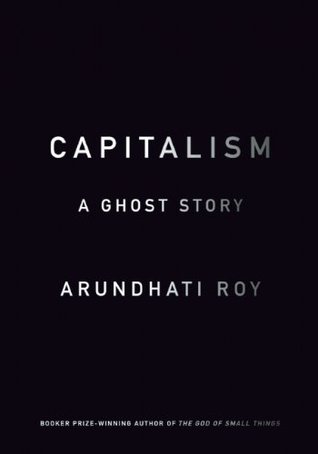More on this book
Community
Kindle Notes & Highlights
According to the rules of the Gush-Up Gospel, the more you have, the more you can have.
The privatization and illegal sale of telecom spectrum does not involve war, displacement, and ecological devastation. The privatization of India’s mountains, rivers, and forests does.
Perhaps because it does not have the uncomplicated clarity of a straightforward, out-and-out accounting scandal, or perhaps because it is all being done in the name of India’s “progress,” it does not have the same resonance with the middle classes.
In India we don’t call this war. We call it “Creating a Good Investment Climate.”
Of late, the main mining conglomerates have embraced the arts—film, art installations, and the rush of literary festivals that have replaced the 1990s obsession with beauty contests. Vedanta, currently mining the heart out of the homelands of the ancient Dongria Kond tribe for bauxite, is sponsoring a “Creating Happiness” film competition for young film students whom it has commissioned to make films on sustainable development. Vedanta’s tagline is “Mining Happiness.”
We all watch Tata Sky, we surf the Net with Tata Photon, we ride in Tata taxis, we stay in Tata Hotels, sip our Tata tea in Tata bone china, and stir it with teaspoons made of Tata Steel. We buy Tata books in Tata bookshops. Hum Tata ka namak khatey hain. We’re under siege.
If the sledgehammer of moral purity is to be the criteria for stone throwing, then the only people who qualify are those who have been silenced already.
The idea of these foundations, so ordinary now, was in fact a leap of the business imagination. Non-tax-paying legal entities with massive resources and an almost unlimited brief—wholly unaccountable, wholly nontransparent— what better way to parlay economic wealth into political, social, and cultural capital, to turn money into power?
By the 1920s US capitalism had begun to look outward for raw materials and overseas markets. Foundations began to formulate the idea of global corporate governance.
There were five CFR members in the 1943 steering committee that planned the United Nations, and an $8.5 million grant from J. D. Rockefeller bought the land on which the United Nations’ New York headquarters stands.
Two of the most opaque, unaccountable organizations in the world go about demanding transparency and accountability from the governments of poorer countries.
Nilekani’s technocratic obsession with gathering data is consistent with Bill Gates’s obsession with digital databases, numerical targets, and “scorecards of progress” as though it were a lack of information that is the cause of world hunger, and not colonialism, debt, and skewed profit-oriented corporate policy.
Armed with their billions, these NGOs have waded into the world, turning potential revolutionaries into salaried activists, funding artists, intellectuals, and filmmakers, gently luring them away from radical confrontation, ushering them in the direction of multiculturalism, gender equity, community development—the discourse couched in the language of identity politics and human rights.
Coercing a woman out of her burka is as bad as coercing her into one. It’s not about the burka. It’s about the coercion.
Funding has fragmented solidarity in ways that repression never could.
The authors of these works are the contemporary world’s equivalent of the early anthropologists, lauded and honored for working “on the ground,” for their brave journeys into the unknown. You rarely see the rich being examined in these ways.
Do we need weapons to fight wars? Or do we need wars to create a market for weapons? After all, the economies of Europe, the United States, and Israel depend hugely on their weapons industry. It’s the one thing they haven’t outsourced to China.
Visa norms in India are an interesting peephole into the government’s concerns and predilections. Taking cover under the shabby old banner of the War on Terror, the Home Ministry has decreed that scholars and academics invited for conferences or seminars require security clearance before they will be given visas. Corporate executives and businessmen do not. So somebody who wants to invest in a dam or build a steel plant or a buy a bauxite mine is not considered a security hazard, whereas a scholar who might wish to participate in a seminar about, say, displacement or communalism, or rising
...more


